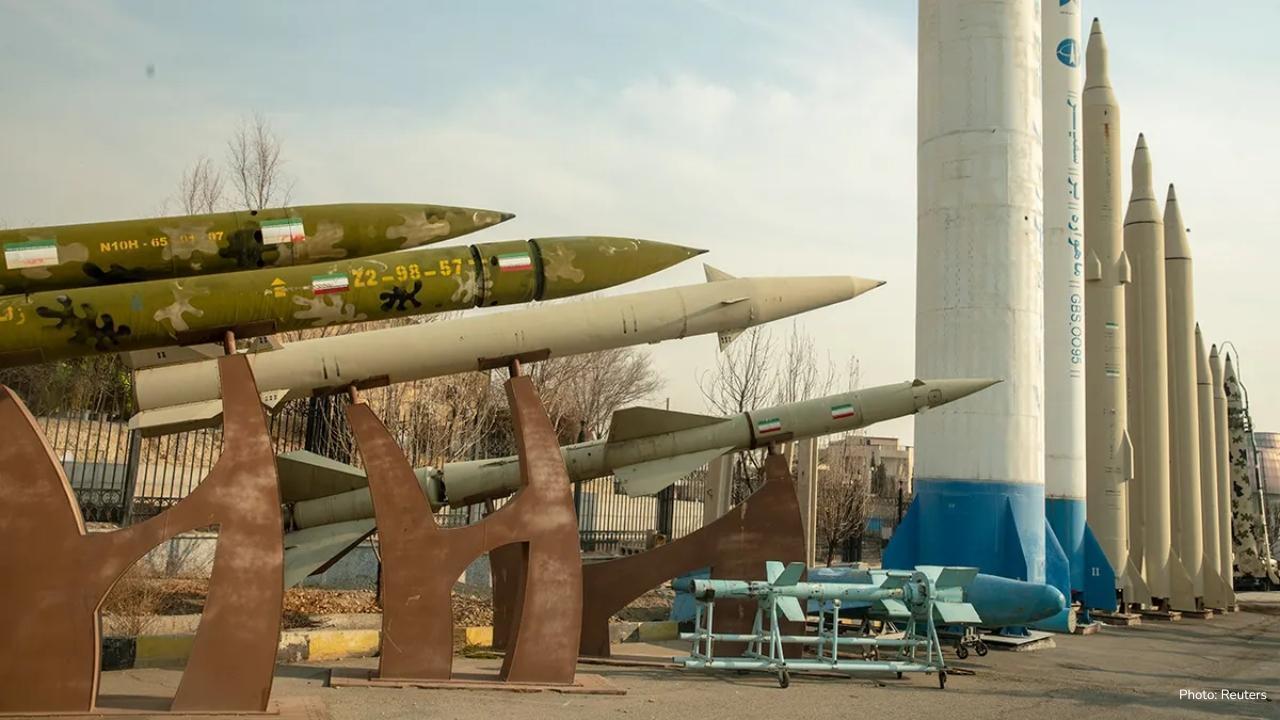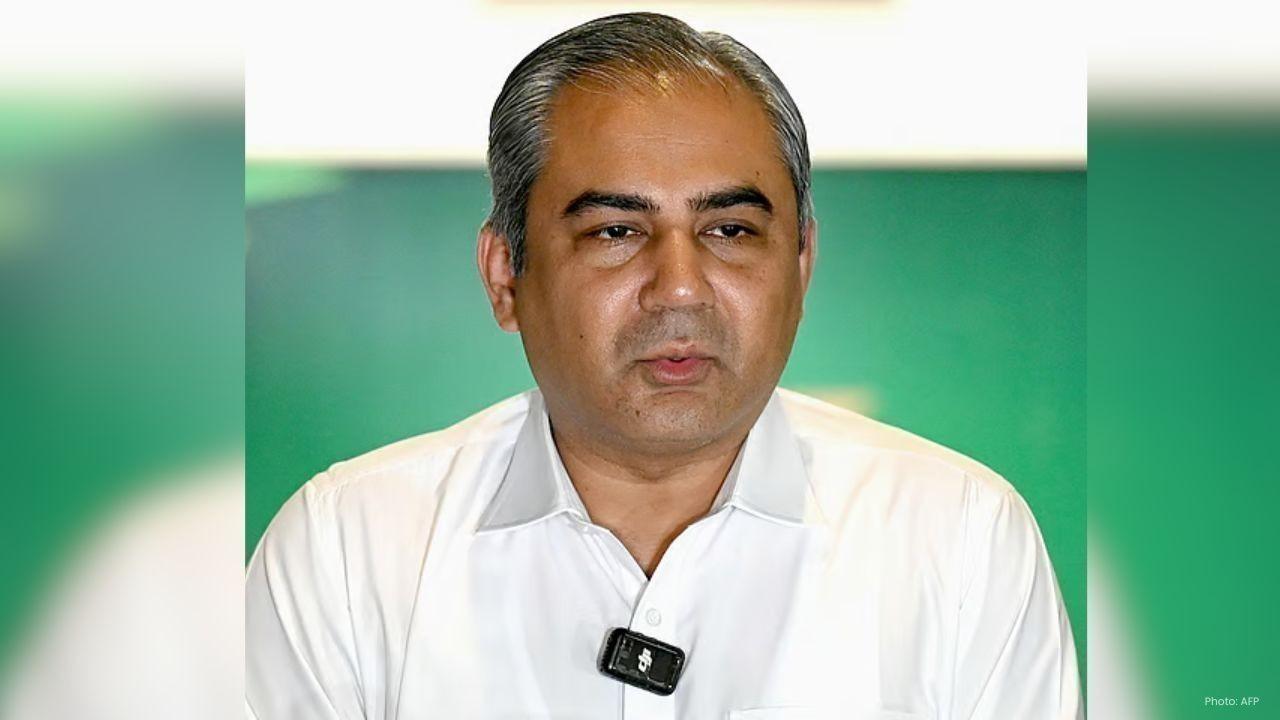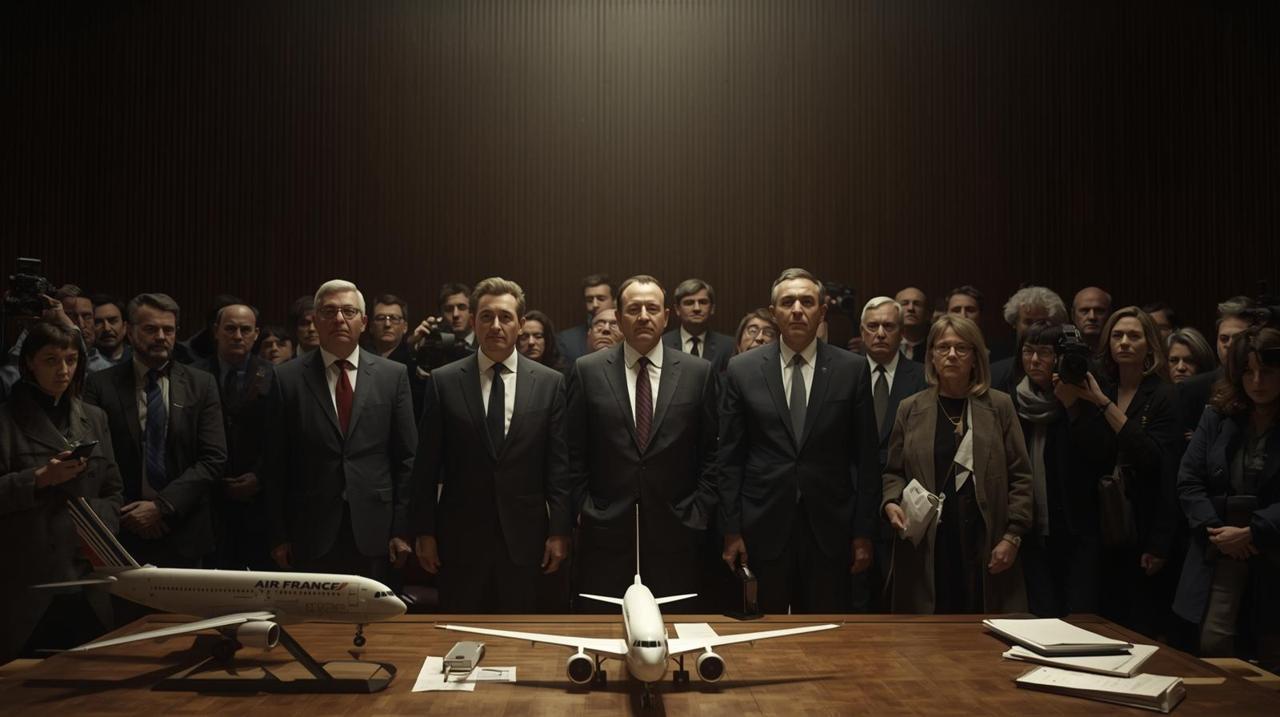
Post by : Monika
Iran has reacted strongly after the United Nations decided to reinstate sanctions over its nuclear program. The sanctions, which were previously lifted under the 2015 nuclear deal, have now been reimposed due to concerns that Iran violated the terms of the agreement.
In a bold move, Iran recalled its ambassadors from Britain, France, and Germany for consultations. Officials in Tehran called the sanctions “legally void” and warned of serious consequences. Despite its strong response, Iran said it would continue to honor the Nuclear Non-Proliferation Treaty, an international agreement aimed at preventing the spread of nuclear weapons.
What the Sanctions Include
The reimposed sanctions are extensive. They include bans on arms sales, strict limitations on uranium enrichment, and controls on missile activities. Some of these measures are specifically targeted at Iran’s nuclear research and missile programs.
In addition, the United Nations imposed travel bans and asset freezes on several individuals and organizations linked to Iran’s nuclear development. These restrictions are meant to pressure Iran into complying with international agreements and to prevent further escalation in the region.
The sanctions are intended to restrict Iran’s ability to develop weapons, limit its access to international banking, and put economic pressure on its government. Experts say these sanctions are among the most comprehensive measures the UN has applied to Iran since the 2015 nuclear deal.
Iran’s Strong Response
Iran’s government expressed strong anger over the sanctions. The Ministry of Foreign Affairs said the decision to reinstate sanctions is “politically motivated and illegal.” Officials accused Western countries of ignoring Iran’s right to peaceful nuclear energy while trying to weaken the nation economically and politically.
Recalling ambassadors from Europe is a clear diplomatic signal. The move shows Iran’s displeasure with the countries that supported the sanctions. By recalling diplomats, Iran is signaling that it may reconsider its future cooperation with European nations on a wide range of issues, including trade, security, and cultural exchanges.
Iranian leaders also warned that the sanctions could lead to “unintended consequences” for the nations involved, hinting at potential retaliation or countermeasures in international forums. However, Iran emphasized that its commitment to the Nuclear Non-Proliferation Treaty remains intact.
Regional and Global Reactions
The reinstatement of sanctions has caused concern across the Middle East. Neighboring countries fear that increased tensions between Iran and Western powers could lead to further instability. Some Middle Eastern governments have called for calm and for diplomacy to be used instead of confrontation.
Russia opposed the UN sanctions, labeling them illegal and calling for dialogue rather than punitive measures. Russian officials argue that the sanctions could worsen tensions in an already volatile region and damage international efforts for peace.
On the other hand, European countries and the United States support the UN decision. They argue that Iran’s nuclear activities have breached international rules and that strict measures are necessary to ensure global security. The European Union announced that it would immediately implement the renewed sanctions.
Israel has welcomed the move, seeing it as an important step to prevent Iran from developing nuclear weapons. Israeli leaders have consistently expressed concern over Iran’s nuclear ambitions and have praised international efforts to impose restrictions.
Economic Implications
The sanctions are already affecting Iran’s economy. The Iranian rial, the nation’s currency, has fallen to a record low. Prices for basic goods, including food and fuel, have risen sharply, creating difficulties for ordinary citizens.
Banking and trade restrictions imposed by the sanctions make it harder for Iranian businesses to operate internationally. Companies face difficulties in importing technology, machinery, and even basic goods. Many experts predict that the economic strain could continue to worsen if diplomatic solutions are not found.
At the same time, some Iranian officials have emphasized self-reliance, saying the country will focus on domestic production to reduce dependence on foreign imports. While this could partially mitigate the effects of sanctions, it will not fully replace the international trade and investment Iran previously enjoyed.
Historical Background
The roots of the conflict date back decades. Iran’s nuclear program has been a point of concern for many countries, including the United States and Israel. The 2015 nuclear deal, officially called the Joint Comprehensive Plan of Action (JCPOA), had lifted many sanctions in exchange for limitations on Iran’s nuclear activities.
Under the agreement, Iran agreed to limit uranium enrichment, allow inspections by international inspectors, and restrict its nuclear research. In return, Western countries eased economic restrictions, allowing Iran access to global markets and foreign investment.
However, in recent years, both sides accused each other of violations. Iran increased uranium enrichment, while Western nations criticized Iran’s lack of transparency and reported clandestine operations. This dispute led to the current reinstatement of sanctions.
Diplomatic Challenges
Iran’s decision to recall ambassadors highlights the difficulty of diplomacy in the current situation. Diplomatic talks between Iran and Western nations have stalled, with both sides blaming each other for delays.
European leaders have urged Iran to return to negotiations, saying that dialogue is the only way to prevent further escalation. The United States has similarly called for Iran to engage in constructive talks and warned that continued defiance could lead to even stricter international measures.
Diplomats warn that without progress, the risk of a broader conflict in the Middle East could increase. The presence of foreign powers, ongoing military operations, and regional rivalries make the situation fragile and unpredictable.
Public Sentiment in Iran
Inside Iran, public opinion is divided. Many citizens express frustration over economic hardships and fear that sanctions will make daily life even more difficult. Rising prices, unemployment, and currency devaluation are major concerns.
At the same time, there is strong national pride and support for the government’s stance. Some Iranians see the recall of ambassadors and rejection of sanctions as a necessary defense of sovereignty and national dignity. Public demonstrations have shown both opposition to economic hardships and support for resisting foreign pressure.
Possible Future Scenarios
Experts suggest several possible outcomes. Iran could continue to defy sanctions, which would increase tensions with Europe and the United States. Alternatively, diplomatic negotiations could resume, potentially easing restrictions and creating a path toward compromise.
The economic situation will be a major factor in Iran’s decisions. Continued sanctions could worsen living conditions for millions, increasing domestic pressure on the government to seek a deal. Conversely, strong national sentiment could reinforce Iran’s determination to resist external pressure.
Military action remains a risk, although most countries emphasize diplomacy to avoid conflict. Analysts warn that any escalation could destabilize the Middle East, affecting oil markets, regional security, and international relations.
The Role of the United Nations
The United Nations plays a central role in this issue. By reimposing sanctions, the UN seeks to enforce international agreements and prevent the proliferation of nuclear weapons.
The sanctions are part of a broader strategy to pressure Iran to comply without resorting to military action. UN officials emphasize that sanctions are meant to be a tool for negotiation, not punishment.
However, enforcement is challenging. Some countries may try to bypass sanctions for economic or political reasons, and Iran may find ways to continue its nuclear research discreetly. These factors complicate the UN’s goal of maintaining global security.
Iran’s rejection of UN sanctions and the recall of ambassadors marks a significant escalation in international tensions. The move affects not only diplomatic relations with Europe but also economic conditions inside Iran and security dynamics in the Middle East.
As the rial continues to fall, prices rise, and public frustration grows, Iran faces the dual challenge of maintaining national pride while managing internal economic pressures.
The international community remains concerned about potential conflict. Diplomatic efforts are ongoing, but trust between Iran and Western powers is low. For now, the situation remains tense, with the risk of further escalation ever-present.
Observers will be watching closely to see if negotiations can resume, if sanctions will have the desired effect, or if the situation will spiral into a larger confrontation affecting the region and beyond.
Iran United Nations UN sanctions,










Sinner & Swiatek Shine at China Open: Semifinal Spots Secured
Jannik Sinner and Iga Swiatek advance to the semifinals at the China Open. Read about their victori

Michigan church attack kills 4, injures 8 in shocking violence
A gunman drove into a Michigan church, fired shots, set fire, killing 4 and injuring 8 before police

Moldova’s Pro-EU Party Secures Majority in Key Vote
Moldova’s pro-European PAS wins a strong majority in the parliamentary election, weakening pro-Russi

Gabriel’s late header gives Arsenal 2-1 win at Newcastle
Arsenal snatch dramatic 2-1 win at Newcastle as Gabriel heads the winner in stoppage time; Merino eq

Air France Flight 447 Trial Opens 16 Years After Tragic Crash
Sixteen years after the Air France Flight 447 crash, a trial opens against Air France and Airbus. Le

Europe close to Ryder Cup win after strong weekend play
Team Europe is on the verge of winning the Ryder Cup, showing great form in Italy and needing only a